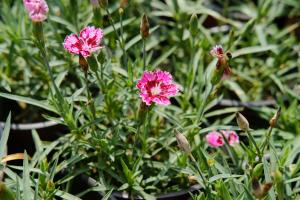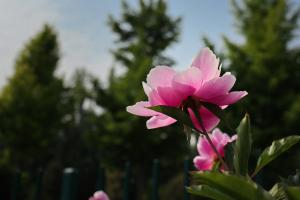Can Tap Water Kill Your Plants?
As a plant owner, you may have heard that tap water can be harmful to your plants. But is this really true? Let's take a closer look and explore if tap water can really kill your beloved plants.
The Chemistry of Tap Water
Tap water can contain various chemicals such as chlorine, fluoride, and heavy metals like lead, cadmium, and arsenic. These chemicals are added to water to make it safe for human consumption. However, they can affect the growth of plants when used for watering.
Chlorine, which is added to tap water to kill bacteria, can damage plant roots and cause discoloration and burn marks on the leaves. Fluoride, on the other hand, can cause browning of leaves and cause growth inhibition in sensitive plants. Heavy metals can accumulate in the soil and eventually kill the plants.
The Impact of pH Levels
The pH level of tap water can also affect the plant's health. The pH scale measures the acidity or alkalinity of the solution. Tap water usually has a neutral pH level of 7, but it can vary depending on the region. Plants have different preferences when it comes to pH levels. Some prefer acidic soil, while others thrive in alkaline soils. When the pH level of the water and soil is not in the optimal range for the plant, it can cause nutrient deficiencies, stunted growth, and even death.
Solutions for Using Tap Water on Plants
Now that we know the potential risks of using tap water on plants, what can we do to minimize the damage and keep our plants healthy?
One option is to let the tap water sit overnight so that the chlorine can evaporate. You can also use a water filter to remove chlorine, fluoride, and heavy metals. Another solution is to collect rainwater or use distilled water to water your plants. Rainwater is naturally balanced with minerals and has a neutral pH level. Distilled water has all impurities removed, making it safe for plants.
Conclusion
Tap water can harm your plants due to the chemicals and pH levels, but it doesn't necessarily mean it will kill them. If you have no choice but to use tap water, letting it sit overnight or using a filter can mitigate the risks. However, to ensure the best growth and health of your plants, it's recommended to use rainwater or distilled water instead.
By understanding the chemistry of tap water and how it impacts plant growth, you can make better choices for watering your plants and ensure their long-lasting beauty and health.

 how many times do yo...
how many times do yo... how many planted tre...
how many planted tre... how many pine trees ...
how many pine trees ... how many pecan trees...
how many pecan trees... how many plants comp...
how many plants comp... how many plants can ...
how many plants can ... how many plants and ...
how many plants and ... how many pepper plan...
how many pepper plan...
































